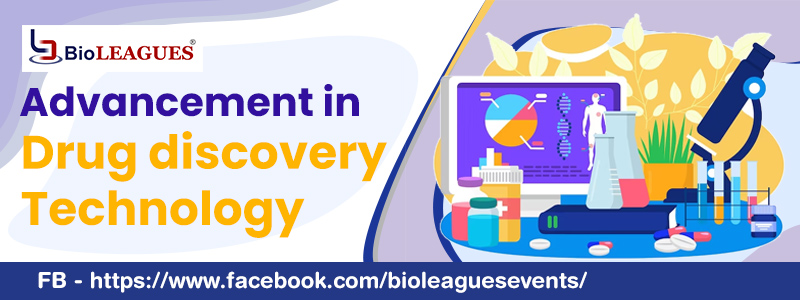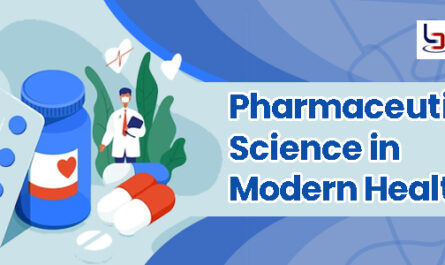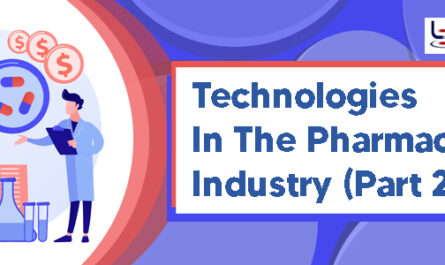Advancement in drug discovery Technology has persisted as a major trend, right from automation, nanofluidics, and imaging to other software and analytical technologies. It has played its part in getting better data faster, resulting in quicker and more profound drug discovery mechanisms. Detailed below are some of the most prolific Digital Health Technologies in 2025, specifically with relation to the advancement of drug discovery.
Data Availability
- In order for development to take place in drug discovery, all facets of the pharmaceutical industry must ensure the better utilization of data. It improve the efficacy of drug development and manufacturing processes.
- In some cases, particularly in development labs, scientists require more advanced analyzes, which could include AI.
- However, most basic AI or machine learning (ML) tools expect large data sets.
- Although pharmaceutical manufacturing produces large data sets. They are typically in the format needed to meet the expectations of most current AI or ML algorithms.
- Therefore, new mechanisms are being developed to work with the datasets in pharmaceutical manufacturing.
- Don’t miss out on this International Pharmaceutical Conference to learn more about this area.
- As pharmaceutical companies continue to collect more data, they want to use it more thoughtfully.
- In the past, companies took a brute force approach by trying to analyze every piece of data.
- Some companies are looking to reduce the amount of data analyzed and simplify the number of dimensions in applications.
- Simplifying the approach to analytics allows everyday users, not just experts and data scientists, to use analytics tools.
Data Analytics
- Achieving such levels of improvement in data analysis will require manufacturers to work closely with bioinformatics experts to determine. The best digital solutions for information collection and management.
- For example, a Laboratory Information Management System (LIMS) stores the data. It is traceable for better data integrity, and that provides better quality data for analysis.
- Scientists can also improve data efficiency by replacing paper with an electronic lab notebook (ELN), integrated with a LIMS.
- To know more about this process, register for this International Medical Conference now.
- By collaborating with analytical and instrumentation experts, drug makers could develop more efficient testing methods during manufacturing while still meeting standards set by regulators.
- In one example, some companies are pursuing such advances in dissolution (release) testing, which determine how long it takes for a pill to enter a solution. Rather than performing offline tests, some companies hope to combine NIR technology and modeling to develop online dissolution tests.
- Don’t miss out on thishigh-level Medical Conference 2025.
- Many manufacturers anticipate an increasing integration of analysis into processes. The data collected could potentially be utilized from R&D to manufacturing, guaranteeing the data continuity envisioned for Pharma 4.0.
- Partaking in the forthcoming Pharma Dubai Conferences and other Medical Conferences in 2025 should help you get up-to-date information on this.
AI in Quickening Drug Discovery
- While AI and the various tools it offers are not quick fixes capable of solving all of the issues responsible for slowing down the pace of drug discovery and development, they hold tremendous promise for the future of drug discovery and healthcare in general.
- Although largely a work in progress, AI tools offer clinical researchers the ability to use large amounts of diverse data gathered in smarter ways.
- However, to ensure the long-term role of AI in the development and discovery of preclinical drugs, it is essential to address intellectual property issues and issues related to –
- confidentiality,
- accessibility and sustainability of drugs and data, as well as,
- the ethics of applying AI techniques to sensitive health information.
- Another common theme when considering the role of AI applications in drug discovery is that these tools shouldn’t just be black boxes that provide answers; they should require a partnership with the scientist to make the discovery work.
- The next generation of healthcare AI experts will need a wealth of knowledge in –
- analytics,
- algorithm coding, and
- technology integration.
- Want to learn more about the role of AI in drug discovery? Save your place at this Upcoming Medical Conference by registering.
- The next generation of healthcare AI experts will need a wealth of knowledge in –
- Over the past decade, interest in AI has developed in the pharmaceutical industry, as it holds the capacity to drastically reduce the time that it takes to develop a new drug.
Quickening Drug Discovery
- A lot of pharmaceutical companies have embraced AI methodologies, such as machine learning, investing heavily in the belief that AI will cut costs, shorten lead times, and give way to the discovery of new and better drugs.
- An important premise of Artificial Intelligence is that it can support and analyze large amounts of data.
- Critical facets of the drug development pathway, such as the discovery of biomarkers, the identification of outliers, and the creation of synthetic control weapons, may also all benefit from the use of drug systems and algorithms.
- AI data sharing is expected to increase in the coming years.
- We’re just starting to harness the value of AI in collecting, managing, and intelligently using industry data.
- This Medical Conference in 2025 will delve into this topic in detail.
- It is understood that integrating AI into the drug discovery process can massively influence the creation of safer and more effective drugs by supporting data-driven decision-making around potential compounds that need to be developed and tested.
- The traditional and early stage of drug discovery research, when potential disease targets are identified, and testing takes place to understand whether a candidate drug can –
- have an influence on the identified target,
- be a long-drawn and complex process that regularly takes four to six years.
- The traditional and early stage of drug discovery research, when potential disease targets are identified, and testing takes place to understand whether a candidate drug can –
AI & Its Role In Drastically Quickening Drug Discovery
- AI (as will be confirmed at this Upcoming Pharma Conference 2025) holds the potential to decrease this timeline and make the process more efficient, leading to enhanced or more targeted molecules/compounds for development.
- Unfortunately, a real impact on compressing these delays has yet to be achieved, and there are different views on why.
- One line of thinking is that with new technology comes new complexity, requiring more decision-making.
- The human decision-making process does not evolve with technology.
- Since, AI fundamentally changes the way decisions are made, human decision-making/ways of working must evolve with it.
- The adoption of AI technology is as much about the change management process of human interaction with data as it is about technology.
- One positive consequence would involve the evolution of traditional drug discovery methods to profit from AI, as opposed to introducing AI into the drug discovery process.
- By using AI correctly, drug discovery has the potential to be revolutionized. It is essential to accelerate drug development and will lead to the establishment of “Drug Development 2.0”.
- Register for this International Pharmaceutical Conference to learn more.
Pharma 4.0 – The New Frontier Of Drug Discovery & Innovation
- Pharma 4.0 is, to a great extent, dependent on a range of existing and new technologies that will enhance the manufacturing of small and large molecules, as well as biosimilars.
- Today’s existing technology is already creating a basis for these advancements.
- Going even further will require collaborations between vendors, academics, industry, and regulators.
- All the Upcoming Pharmaceutical Conferences will go into detail on Pharma 4.0.
- Comparable collaborations will likewise be required to secure the strong and optimal assimilation of digital systems with physical instruments.
- With this integration, a biotech or pharmaceutical company will reap the benefits of producing high-quality pharmaceuticals and doing so with enhanced reproducibility, faster speeds, and, maybe even more cost-effective.
- Register for this International Medical Conference in 2025 to find out more about Pharma 4.0.
- With Pharma 4.0, drug manufacturers will start to have access to more beneficial data about drug manufacturing processes and use that knowledge to accelerate the development of new methods, but it depends on teamwork.
- The potential of integrated partnerships can help pharmaceutical manufacturers focus on the most pressing goals, including –
- improving processes,
- limiting downtime,
- balancing quality and operational costs,
- meeting business needs, and
- maintaining a reputation for quality and reliability.
- Save your place at this Upcoming Medical Conference In 2025, now.
- The potential of integrated partnerships can help pharmaceutical manufacturers focus on the most pressing goals, including –
Quantum Computing – Backbone Of Drug Discovery
- Quantum computing is perhaps the biggest Emerging Health Technology In 2025.
- The foundation for the elaborate calculations that quantum computing allows for lies in Quantum Mechanics, a subfield of physics that describes the behavior and actions of very small (i.e., quantum) particles.
- It was first proposed in the ’80s to enhance the computer modeling of complex quantum system
- Since then, progress has been made in building small-scale devices processing quantum information. It significant technical progress is still needed to realize a functional and practical quantum computer on a large scale.
- Unlike classical computers whose computing powers are based on the –
- mechanical,
- thermodynamic or
- electromechanical characteristics of their substrates.
- Quantum computers (QCs) are built using –
- superconducting qubits,
- trapped ions and photons,
amongst other physical mechanisms.
- As such, QCs are inherently sensitive to external disturbances and, therefore, somewhat error-prone – a concern that was not raised during this session but was hotly debated in the IT world.
- But if these and other challenges are tackled effectively, QCs have the potential to handle very intricate and particular modeling problems with exceptional efficiency and precision.
- Book your place at this Pharmaceutical Quality Conference in 2025.
- While they are not a replacement for traditional computers (much of what we do with traditional computers will not benefit from quantum computing), the ability of QCs to handle otherwise intractable problems opens the door to use cases where conventional computers would fail.
- Drug discovery and development involve quantum chemistry, such as the precise simulation of atoms and molecules, combinatorial optimization. For example, molecular structures and interactions, and machine learning.
Advances In Drug Discovery
- The rationale here is that a computational model with integrated quantum mechanics will be best suited to simulate quantum systems.
- Some examples of this include –
- The properties of molecule or atom are governed by quantum mechanics. Finding exact solutions to these extra ordinarily difficult quantum calculations using classical computers is insoluble, even for very small molecules, such as methane (CH4); to model the exact properties of this molecule would challenge even the most powerful super computers.
- Analysis of molecular structure and interactions, which comes under so-called “combinatorial optimization”. It requires the selection of a subset of applicable characteristics, a task that becomes easily unmanageable for large problem. Partaking in Upcoming Pharmaceutical Conferences will help you learn more about this area.
- Machine learning is an application of quantum computing that has only been around for a few years. Two important contexts in which machine learning can benefit from the use of QCs are supervised learning in data classification and as a sampling device.
- In the latter case, quantum computers can assist in the generation of quantum states that are otherwise impracticable to describe with traditional computational approaches. The World Economic Forum Conference 2025 highlighted the significance of QCs in drug discovery.
Partnerships of digital technology and biopharmaceutical companies will continue to gain traction over the next ten years to shorten and streamline the drug development process. Mean While bringing life-saving treatment to the patients who will need it the most. Pharmaceutical/technology collaborations help pharma companies adopt a more agile mindset for drug development even before tangible benefits to the development process are realized. Such collaborations promise to result in more efficient and cost-effective bench-to-bedside solutions. Register for this Pharma Conference 2025 right away.




